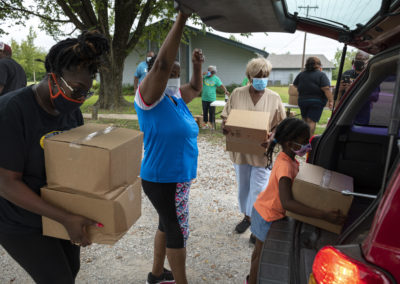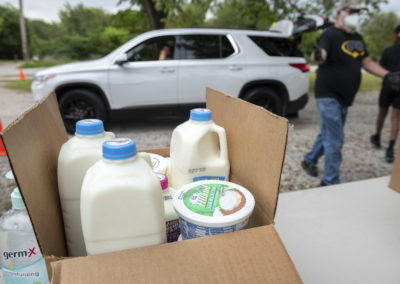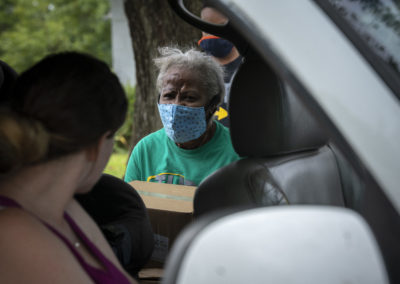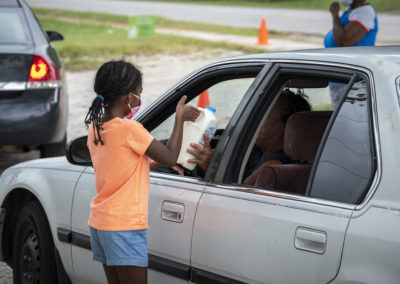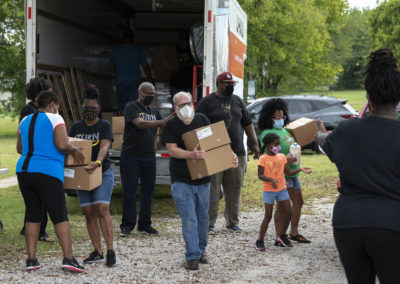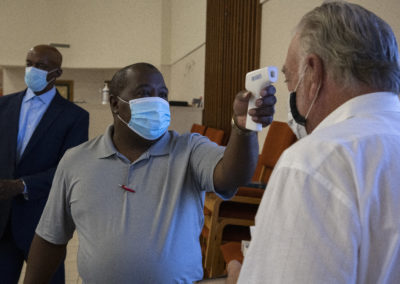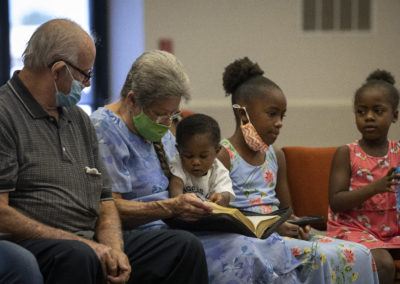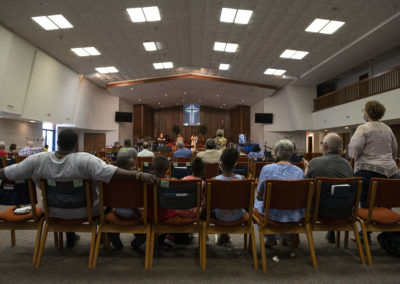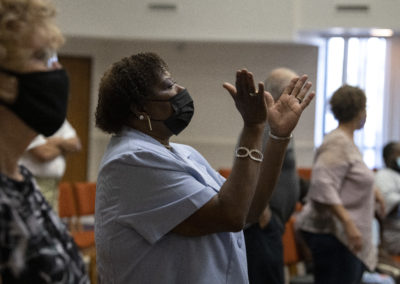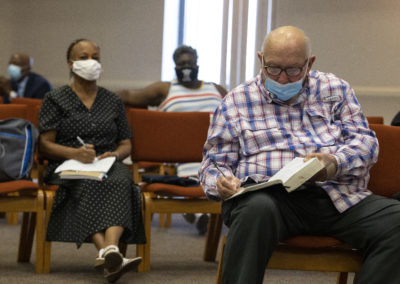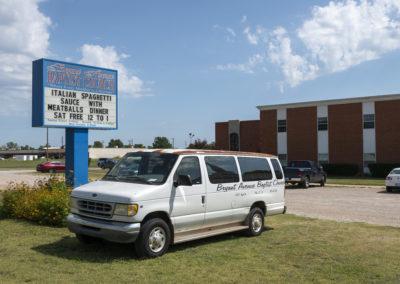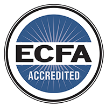Impact Stories

Connect With Our Experts
Growing A Gospel Community
African American pastors serve a unique role in their communities. They are not only leaders in faith but also in the advancement of charity and social engagement. Empowered by the Holy Spirit, their commissions can lead to dramatic transformations in their churches and, ultimately, in the neighborhoods they serve. Yet, pastorship can be a lonely challenge that demands extraordinary energy and resources. The following stories highlight three Black Southern Baptist pastors who are impacting their communities with the Gospel as they lead their churches to provide practical help and promote biblical diversity in partnership with Oklahoma Baptists.
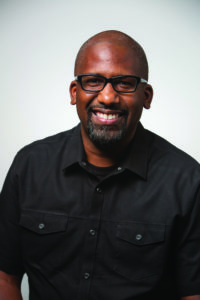 Meeting The Need
Meeting The Need
Most people think of Saturday morning as an opportunity to hit the snooze button and catch up on sleep. But on this overcast Saturday in Tulsa, Oklahoma, Keith Joyner forsakes a slow start to his day and instead makes his way to Turn Church. There, he opens the back of a U-Haul truck and prepares to unload precious cargo. The pallet sitting inside holds 400 boxes of milk and other dairy products that about a dozen volunteers will transfer to waiting vehicles full of hungry families. The 400 boxes will be gone in an hour.
At precisely 10:30 a.m. — hardly enough time for church members to begin stacking the boxes onto plastic folding tables in front of the church — cars begin arriving. Wheels crunch over the gravel driveway, and cheerful volunteers load boxes into trunks and backseats.
“My pastor is about community service,” says Joyner, who runs the food ministry at Turn Church. He knows the giveaway’s impact, especially on families struggling to make ends meet. “We’ve had people tell us things like, ‘I lost my job and I can’t go to work,’ or, ‘This is the only way I can provide for my family,’” he says.
Pastor Tiller Watson, a Tulsa native, started Turn Church six years ago. His congregation is primarily African American.
“Our role is to be a light, showing God’s colors in this world,” he says. “Jesus told us, ‘…whatever you did for the least of these brothers and sisters of mine, you did for me.’ We have to make the ‘least of these’ the most important part of our ministry. We’re for the ignored, the overlooked and those that feel like people have forgotten them.”
The grocery giveaways are just one of the strategies Turn Church uses to tangibly demonstrate God’s love for the community. While Watson knows that people’s most critical need is a relationship with Christ, meeting physical needs opens doors for Gospel conversations.
“Our area is about 50 percent Black, single parent homes. Roughly one-third of households make less than $25,000 per year,” he says. “We are making a valiant effort to change lives with the Gospel, but I’ve always been one that believes that people don’t care how much you know until they know how much you care. … It’s up to us to help make up the difference.”
Watson’s wife, LaTricia, is optimistic about the work they are doing.
“I hope when they think of Turn Church, they think of love and support,” she says. “When they pass by, they remember, ‘I got a meal there. I got my Saturday box there.’”
The Watsons’ enthusiasm is infectious. Many Turn church volunteers, like Rena Tate and her great-granddaughter, 9-year-old Iionni, exhibit the same passion serving others.
“We as the church, no matter our skin color, have got to learn to come together and show love and support for our community. That’s what God wants us to do,” Tate says.
Jim Perry, who is white, has been with Turn Church since the beginning. He says the congregation’s dedication to serving the community is one of the reasons he loves the church so much. The other is its members.
“I love the people and the desire to do good. I was taken in as family from day one, and I’ve been informed that I will have to die to leave,” Perry says with a grin.
Watson has big ideas for new ways Turn Church can continue meeting needs. He sweeps his hand over a large empty space in front of the church building. He envisions fields where people can play sports and a food pantry to give away essential items every day — not just Saturdays. Watson wants to develop an after-school program to provide a safe place for children. He dreams of buying houses in the neighborhood so Turn Church can become a “reasonable landlord” for families trying to get back on their feet. He wants to teach his community to use technology to connect the unemployed with jobs.
Finally, and perhaps most novel, he hopes to build a laundromat. The idea came one day as he watched a couple drag a heavy basket full of laundry to the bus so they could travel to a laundromat, a challenge that most with a household washer and dryer never even consider.
“My heart broke in that moment,” Watson remembers. “I said, ‘Lord, how did I miss this?’”
He believes that by providing these services for the community, people will see that the church is here for them — and that God loves them. That investment is already paying eternal dividends. During the past four years, Turn Church has seen about 30 salvations and 20 baptisms.
“My desire to care for you is not connected to whether or not you’ll accept the Christ that I serve,” Watson says. “I want you to, and, at some point, you’re going to realize that this is the best decision that you can make. But until then, I want you to know that God cares about you and that the church cares about you.”
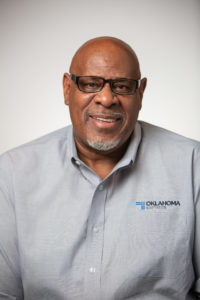 In The Making
In The Making
It’s a truth Walter Wilson regrets: “Southern Baptists do not have a great history with African American churches,” he says. But as the African American ministry partner for Oklahoma Baptists, it is Wilson who’s been tasked to help change that.
“My role is to build and strengthen relationships between African American churches and Oklahoma Baptists,” he says. During the course of the past three years, Wilson has delivered. Black church involvement with the state convention has grown from 20 to 62 churches, a success he attributes to communicating Oklahoma Baptists’ value.
“You need someone who understands the culture and ‘speaks the lingo,’” says Wilson, who also serves as pastor of Friendship Baptist Church, a predominantly Black congregation in Lawton, Oklahoma.
Oklahoma Baptists offer churches family, education and support, Wilson explains. “I am connecting Black congregations with a large brotherhood, one where we are all equal, no matter the size of your church.”
Wilson says that Oklahoma Baptists’ emphasis on pastoral care is particularly attractive, especially to Black pastors.
“The convention cares about pastors,” he says. “They care about a pastor’s health, his family and his church. A lot of times in the Black church, you’re out there by yourself.”
According to Wilson, many African American pastors are bi-vocational, meaning they shepherd their church on top of working a full-time job.
“He’s working eight hours a day, he’s got a family and he has to take care of his church, so that doesn’t leave much time,” Wilson says. “Oklahoma Baptists provide those little retreats where a pastor can relax and recharge.”
Tiller Watson planted Turn Church in Tulsa, Oklahoma, in 2014, and says his congregation has been involved with Oklahoma Baptists from the beginning. As a bi-vocational pastor, Watson says the support he receives from the state convention helps him manage his day-to-day ministry.
“Pastoring can be frustrating at times,” Watson admits. “Oklahoma Baptists give us the opportunity to not only get away and refresh ourselves, but also training and instruction that help advance our ministry and outreach. The opportunity to connect with other area pastors is also a big benefit.”
Pastor David Hooks agrees. Hooks serves as Oklahoma Baptists’ second vice president and also leads Bryant Avenue Baptist Church in Oklahoma City.
“The convention has really been a blessing, not just from the resources that they provide but from the standpoint of the encouragement and fellowship,” Hooks says.
That sense of fellowship and community is what drives Wilson’s work to connect more Black churches with Oklahoma Baptists.
“When I arrived here 13 years ago, the first thing I noticed was that there was a lack of African American involvement in the state convention,” Wilson says. But he adds that began to change following the arrival of Hance Dilbeck, who began leading Oklahoma Baptists in 2017.
“When Hance came, it changed the whole flavor of the convention,” Wilson explains. “Now there is a new era. There was a stalemate for a long time, but they’re finally beginning to put programs together that will attract minorities.”
While Wilson admits he would like to see greater minority representation among Oklahoma Baptists’ leadership, he is encouraged at the direction the convention is heading.
“I think we have a great convention. I am very proud of the progress that we’re making,” he says.
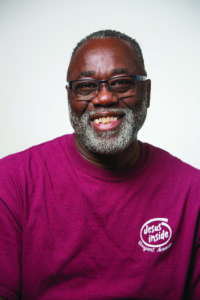 A Church for All
A Church for All
Henry Newby stands at the front door of Bryant Avenue Baptist Church taking people’s temperatures. He is lighthearted about his duties as he places an infrared thermometer near the foreheads of incoming church members; his kind eyes help ease the new normal for this historic Oklahoma City congregation. Nobody seems to mind. It’s a small price to pay for in-person worship with church family, a treasure that’s become even more valuable in the midst of COVID-19.
“Everyone’s faith is shaken by what’s going on in society right now — the pandemic, social injustice,” Newby says. “It’s important that God’s house is open.”
Larry Thompson thinks so, too. He’s attended Bryant Avenue for over a decade and believes the church is like a lamp on a hill.
“The world is dark right now,” Thompson says. “A lot of people don’t know what’s going on, but we know Jesus is the answer.”
Pastor David Hooks has shepherded Bryant Avenue since 2008. He came to the church from Idabel, where he planted the first African American Southern Baptist Church in southeastern Oklahoma. Bryant Avenue, however, offered a different challenge for Hooks.
“When I got here, this was a really white congregation … there were like three Black people in the whole church,” he remembers. But the Oklahoma City neighborhood where Bryant Avenue sits is at least 50 percent African American. “It was one of those deals where I knew why God brought me here,” he adds.
Hooks’ challenge was to build a diverse church in a diverse neighborhood. He wanted to create an inclusive environment that represented the community it served.
“God desires Christians to reach all people, and He had called Bryant Avenue to become a microcosm of Heaven — a multicultural, multiracial, multigenerational church,” he says. “There were obstacles to that, to keep it from what I call ‘too Black’ or ‘too white.’”
One area he focused his efforts was the church’s music, which was limited to only hymns when Hooks arrived.
“I said, ‘Listen, if we’re going to reach young Blacks, whites and Hispanics, we are going to have to sing some praise and worship. We are still going to sing some hymns. But we can also sing Black gospel, contemporary, and praise and worship. We are going to sing it all because church should be where everybody comes and feels welcome, and that includes worship.’”
Today, the success of Hooks’ vision is apparent in the diversity of Bryant Avenue’s congregation. In the past five years alone, the church has seen 66 salvations and 78 baptisms spread across a spectrum of ethnicity, age and culture. The pastor’s impact can also be heard through the words of its members. Lewis Hoss has been attending Bryant Avenue for nearly fifty years. Hoss, who is white, says he has seen genuine transformation under Hooks’ leadership.
“It’s just been a blessing,” Hoss says. “The years since Pastor Hooks’ arrival have been a real growing opportunity. We’ve been a witness for this community. People can come here and feel Christ’s love and kindness. I believe, truly, we are brothers, and it makes no difference what skin color you are or what background you are from.”
When visitors walk into Bryant Avenue, Hooks believes that truth is tangible.
“People come to visit and they say ‘Wow, this is how church is supposed to be!’” he explains. “You’ve got Blacks and whites and they are sitting together. It’s not the white folks over here and the Black folks over there. They mingle. They sing together. They love each other.”
Kahlil Garner, who is Hooks’ adult daughter, is aware of the racial unrest that exists outside Bryant Avenue’s doors. But she believes the church is making a difference.
“Out there you deal with racism and fear,” Garner says. “When you’re out there and you’re facing such a struggle with how people look at the police, how the police look at people, how whites look at Blacks and how Blacks look at whites … But when you come in here, you don’t see that. It makes you feel like there’s hope.”
Hooks fondly recalls something a friend told him not long after he began pastoring at Bryant Avenue, one that he hopes defines the church.
“I was talking with her one day, and she told me, ‘You know, before I got to Bryant, I couldn’t stand white folk. Now, I love them.’ I said, ‘Yeah, it’s about getting to know people.’ The more you are involved and the more people spend time with you, the more they understand the stereotypes are not true.”
Hooks knows that hope is ultimately rooted in the biblical truth that all have fallen short of God’s glory, and that Christ’s redemptive work on the cross is meant to save people from every nation, tribe, people and tongue.
“My greatest joy at Bryant is to see how the building of Gospel-centered relationships has hindered racial tension from infiltrating our church. We do have Democrats and Republicans, we have those who believe systemic racism exists and we have some who don’t, but doing life together has built a love for one another that dispels preconceived notions about race,” Hooks says. “My desire is that we would not simply be a church of Blacks and whites — there are Hispanics and other races and cultures in our community that we have yet to reach. God still has much for us to do!”
Your Generosity Changes Lives With The Gospel
When you give to your local Baptist church, a portion of your gift goes to Oklahoma Baptists, who provide resources and support to more than 1,700 churches across the state, including congregations like Turn Church and Bryant Avenue Baptist. WatersEdge can help you multiply your generosity through smart giving solutions like a donor-advised fund, endowment or an estate plan. Start a conversation with a WatersEdge giving professional today.
give@WatersEdge.com | 800-949-9988 | WatersEdge.com

